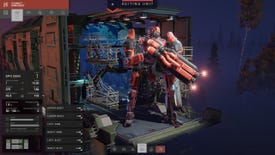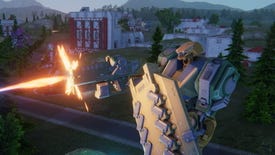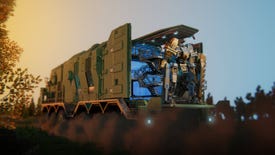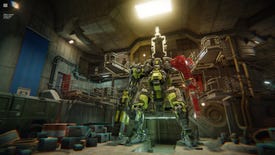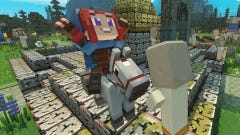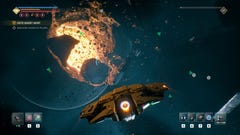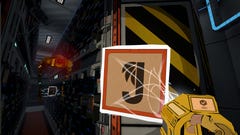Phantom Brigade review: entertaining mech battles carry a toothless campaign
These guys in robots
I'm still not entirely sure if I'm playing Phantom Brigade right. According to its internal clock, battles usually take less than a minute. That time is divided into five-second chunks during which you're shown what the enemy will do, and must use that to coordinate your own mechs, placing their orders on a visible timeline. You finish your turn by hitting a button that makes everyone go at once for a few explosive moments.
In practice, behind those few seconds are an eternity of theorising, testing, and tweaking. There's probably a metaphor in there somewhere about writing, video editing, or catering. The result is a game that's taken me absolutely ages, but whose numbers suggest I'm supposed to be blasting through without a care.
I am enjoying it a lot, despite some frustration.
It's tempting to add "it's big stompy mechs innit" to that, but only a few hours in I was thinking of them as robots, so slavishly obedient are they to the timeline you set out. Each turn, you plan exactly where they go and who to shoot at, drawing various lines on the map for movement and targeting. These orders fill in on a timeline at the bottom of the screen which, if hovered over, displays little phantoms on the field to demonstrate what everyone will be doing at any given movement, and where your rifleman and your shotgunner are going to run into each other, oops.
Half the point of real-time, turn-based hybrids is to test your ability to coordinate and counteract. Phantom Brigade gives you foreknowledge of the enemy's moves (as opposed to Frozen Synapse, where you also had to second guess and gamble on their behaviour), so it feels like you should decide quickly, but where I found it a little too easy two years ago, combat is now fairly punishing. There's less need to account for every possible direction a target could go, but the volume of enemy fire makes reckless play suicidal even before considering the strategic map layer.

No plan survives contact with the enemy, but your mechs will stick resolutely to one anyway, firing another four shots at an already dead target. This is annoying but potentially disastrous as they're now shooting not at its original destination, but where it fell, even if that means shooting a teammate in the back (you can aim at a location instead, but this tends to be hopelessly inaccurate), or crashing into your unexpectedly downed ally.
In its defence, the same is true of the enemy, giving great value to speedy light mechs who can sow chaos by tricking them into shooting each other. There aren't strictly delineated types, mind; instead of fixed chassis with guns welded on, you get big lego bots with parts stuck together as you like. The resulting mass might classify as "light", but that only determines who can barge who else over. A light mech could be significantly tougher than a medium, a heavy could have multiple light limbs. Enemies use partially randomised gear, all fully lootable. There are plenty of stock models as a baseline, but many come with attached perks, so a railgun could vent heat faster, or an arm comes with extra plating. Gear is both levelled and tiered and often has slots for more modifications in addition to the innate perks, letting you build almost any design you have parts for. Lower-level weapons can outperform those the game judges better, because of perk/attachment combos, and because the game apparently judges relative strengths very differently from me.
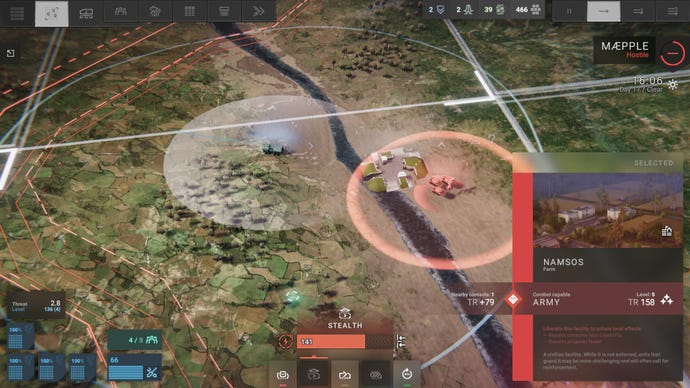
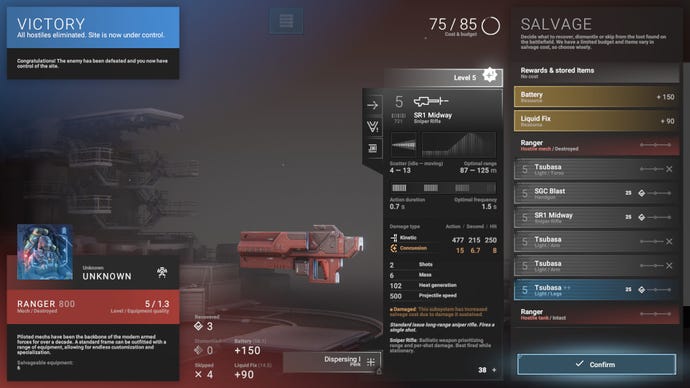
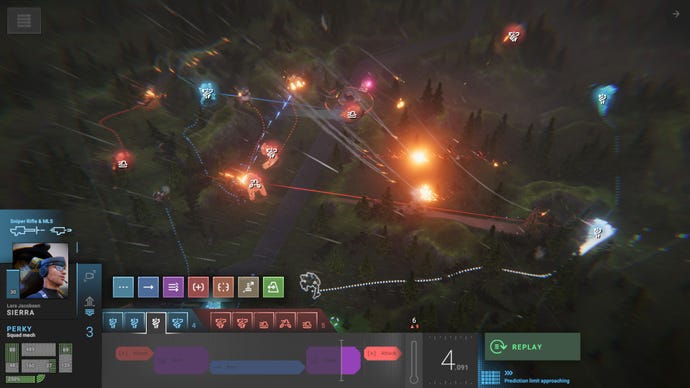

Lost parts can be salvaged, but it's more expensive than recovering intact ones from enemies who've bailed or passed out, pushing you to modify your designs often. But the salvage screen is a mess, forcing lots of scrolling of the 30% of screen space that does anything, and not letting you sort, compare items, or even see what you have in storage.
"Fortunately, the bland campaign and narrative aren't quite dead weight, as Phantom Brigade's mechs are very satisfying to blow apart"
The inventory and loadout screens similarly suffer from irritating, esoteric quirks that necessitate too much back and forth. The UI in general is dusted with sand, like mandatory double-clicking for zero-cost operations, the lack of a "follow" order on the map screen, or how the duration of "wait" orders are determined not by dragging it across the timeline where it makes sense, but by awkwardly stretching a cursor across the terrain. It feels like trying to get a round number on a petrol pump. Low-level irritation in too many parts.
The campaign map sees you driving a mobile base around, dodging detection circles, and raiding bases and patrols for supplies, with the ultimate goal of liberating your homeland. Enemy response (aka level) increases as you fight and lurk, so you're meant to hit and run. Formally contesting a province effectively starts a timer, during which you must hit enough strongholds or battlefields before your side's morale collapses. It's entirely fine, though I'd personally prefer a heavier focus on raiding convoys. There are random events where civilians exchange supplies for PR, or your pilots ask you to sit around doing nothing for hours and you reply with a curt "no" because the other option just scratches your health and that replenishes almost immediately anyway. It feels like pilot morale and health were merged at some point. Pilots can be knocked out with concussive attacks, but beyond that are irrelevant except when you have to flush them down the bog and get a new one.
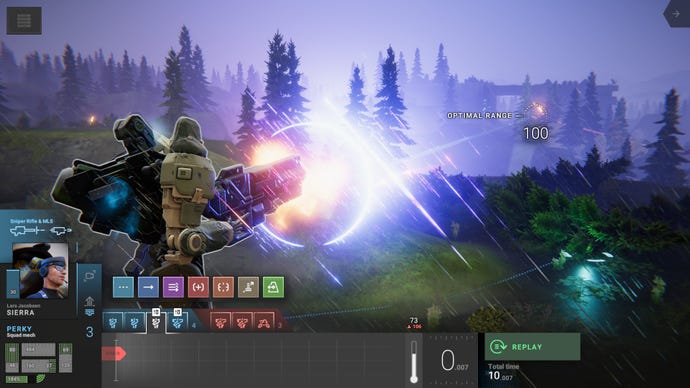
The workshop, too, is weirdly elaborate for something I almost never used. You can spend supplies and rare gubbins to manufacture stuff the enemy drops in heaps. They're better spent on base upgrades to move faster and see further, but it's there if you really want a specific gun.
Fortunately, the bland campaign and narrative aren't quite dead weight, as Phantom Brigade's mechs are very satisfying to blow apart. Even melee, rendered incredibly unreliable by its utterly opaque timeline representation, becomes worth it for the times when you'll smash three enemies in one swing, then sprint off to flank another as a missile your other guy launched last turn lands in your wake. The replay controls are annoyingly inconsistent, but it's still a joy to watch them, and nailbiting to see your mech flee from a minigun barrage, or stumble from a lucky sniper shot. Phantom Brigade's personality may be lacking, but it doesn't get in the way of solving those chaotic tactical puzzles, or the timeless satisfaction of sitting back once everything's decided and watching your exploders do their thing.


